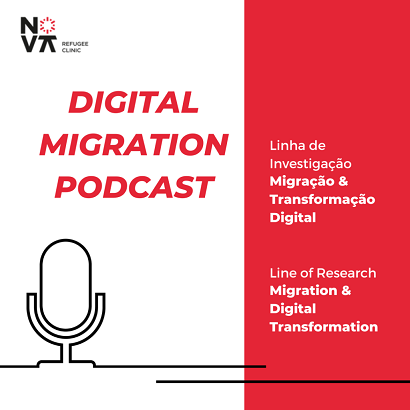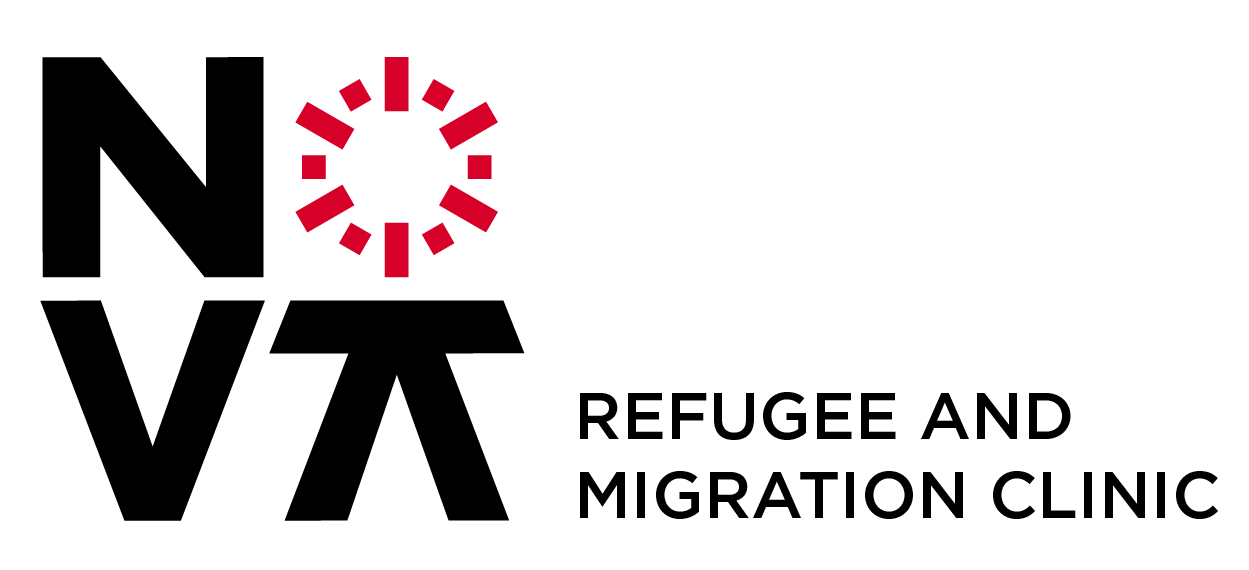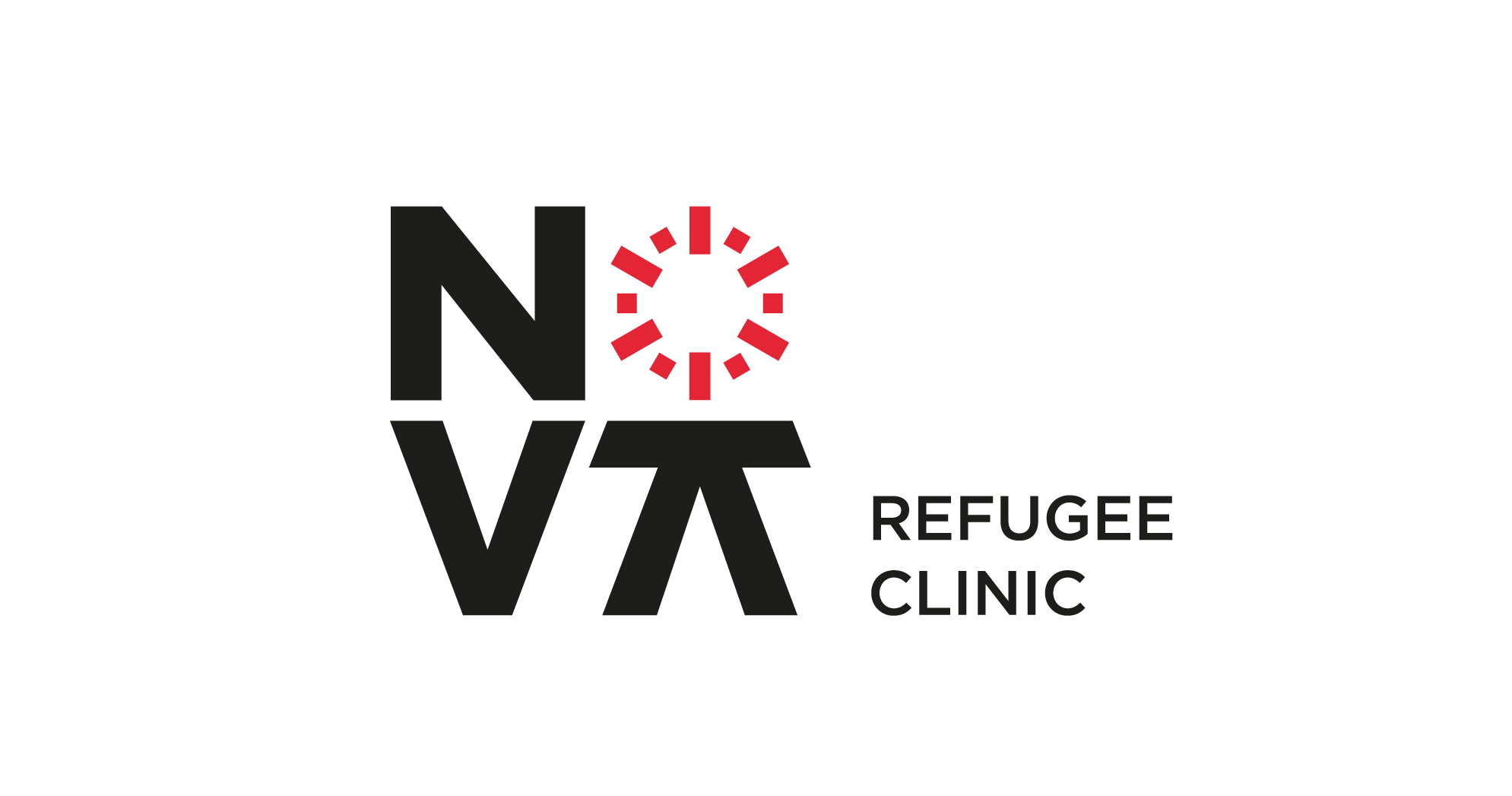
[PT] “Digital Migration Podcast” é uma iniciativa da Linha de Investigação “Migração & Transformação Digital” da NOVA Refugee Clinic – Legal Clinic. Fiquem atentos aos próximos episódios em Inglês e Português.
Coordenadora: Emellin de Oliveira
[EN] “Digital Migration Podcast” is an initiative of the Line of Research on “Migration & Digital Transformation” of NOVA Refugee Clinic – Legal Clinic. Stay tuned for upcoming episodes in English and Portuguese.
Coordinator: Emellin de Oliveira
EPISODES
Ep. 4 – “ECRIS-TCN and the fundamental rights of third-country nationals”
In 2019, the EU Parliament and the Council adopted the Regulation (EU) 2019/816 establishing a centralised system for the identification of Member States holding conviction information on third-country nationals and stateless persons (ECRIS-TCN) to supplement the European Criminal Records Information System and amending Regulation (EU) 2018/1726.
According to Recital 22, “Citizens of the Union who also hold the nationality of a third country will only be included in ECRIS-TCN if the competent authorities are aware that such persons hold the nationality of a third country. Where the competent authorities are not aware that citizens of the Union also hold the nationality of a third country, it is nevertheless possible that such persons have prior convictions as third-country nationals. In order to ensure that the competent authorities have a complete overview of criminal records, it should be possible to query ECRIS-TCN to verify whether, in respect of a citizen of the Union, any Member State holds criminal record information concerning this person as a third-country national”.
This episode focuses on the ECRIS-TCN and its impact on the protection of the fundamental rights of third-country nationals and bi or multinational persons.
Our distinguished guests:
– Valsamis Mitsilegas, Professor of European Criminal Law and Global Security, Director of the Criminal Justice Centre and, since 2018, Deputy Dean for Global Engagement (Europe) at Queen Mary University of London.
– Petra Molnar, Associate Director of the Refugee Law Lab, based at York University’s Centre for Refugee Studies and Osgoode Hall Law School at York University. She is also a lawyer and researcher at the Migration and Technology Monitor.
– Chris Jones, Director of Statewatch, where he has worked since 2010. His work focuses on issues related to policing, migration, privacy and data protection and security technologies.
Chair: Priscila Azevedo, Member of the “Migration and Digital Transformation” Research Line at NOVA Refugee Clinic – Legal Clinic
Stay tuned!
![]() Ouça / Listen to Ep. 4 – “ECRIS-TCN and the fundamental rights of third-country nationals”
Ouça / Listen to Ep. 4 – “ECRIS-TCN and the fundamental rights of third-country nationals”

In 2016, the EU Parliament and the Council adopted the DIRECTIVE (EU) 2016/681 on the use of passenger name record data for the prevention, detection, investigation and prosecution of terrorist offences and serious crimes (EU-PNR Directive).
This episode focuses on the relationship between the EU-PNR Directive, the fight against transnational terrorism and data retention of third-country nationals.
Our distinguished guests:
– Alexander MacKenzie, Lecturer in International Politics at University of Liverpool
– Ricardo Rodrigues de Oliveira, Guest Assistant Professor at the Portuguese Catholic University, School of Law
– Mirko Forti, Research Fellow at Sant’Anna School of Advanced Studies
Chair: Emellin de Oliveira, Coordinator of the “Migration and Digital Transformation” Research Line at NOVA Refugee Clinic – Legal Clinic
Stay tuned!
![]() Ouça / Listen to Ep. 3 – “Passenger Name Record, Transnational Terrorism and Data Retention of Third-country Nationals”
Ouça / Listen to Ep. 3 – “Passenger Name Record, Transnational Terrorism and Data Retention of Third-country Nationals”
Ep.2 – “Digital migration – a look at the SIS”
Schengen Information System (SIS), according to the European Commission, is the most widely used and largest information sharing system for security and border management in Europe. However, what is the purpose and functioning of the SIS? What is it that makes mass dataveillance a sustainable policy option for EU border security?
These and more questions are discussed by our two distinguished guests:
– Evelien Brouwer, Utrecht University, Institute of Jurisprudence, Constitutional and Administrative Law
– Julien Jeandesboz, Université Libre de Bruxelles, Centre for International Politics
Chair: Sofia Solayman, Member of the “Migration and Digital Transformation” Research Line at NOVA Refugee Clinic – Legal Clinic
Stay tuned!
![]() Ouça / Listen to Ep. 2 – “Digital migration – a look at the SIS”
Ouça / Listen to Ep. 2 – “Digital migration – a look at the SIS”
Ep. 1 – “Migration and Technology – connecting the dots”
“Migration and Technology”, is this a recent relationship or an old partnership? When it comes to serious crime, does technological advancement definitely allow us to distinguish an ordinary citizen from a potentially serious criminal?
These and more questions are discussed by our two distinguished guests:
– Niovi Vavoula, Lecturer in Migration and Security at Queen Mary University of London, School of Law
– Athina Sachoulidou, Assistant Professor at NOVA School of Law
Chair: Emellin de Oliveira, Coordinator of the “Migration and Digital Transformation” Research Line at NOVA Refugee Clinic – Legal Clinic
Stay tuned!
![]() Ouça / Listen to Ep. 1 – “Migration and Technology – connecting the dots”
Ouça / Listen to Ep. 1 – “Migration and Technology – connecting the dots”




